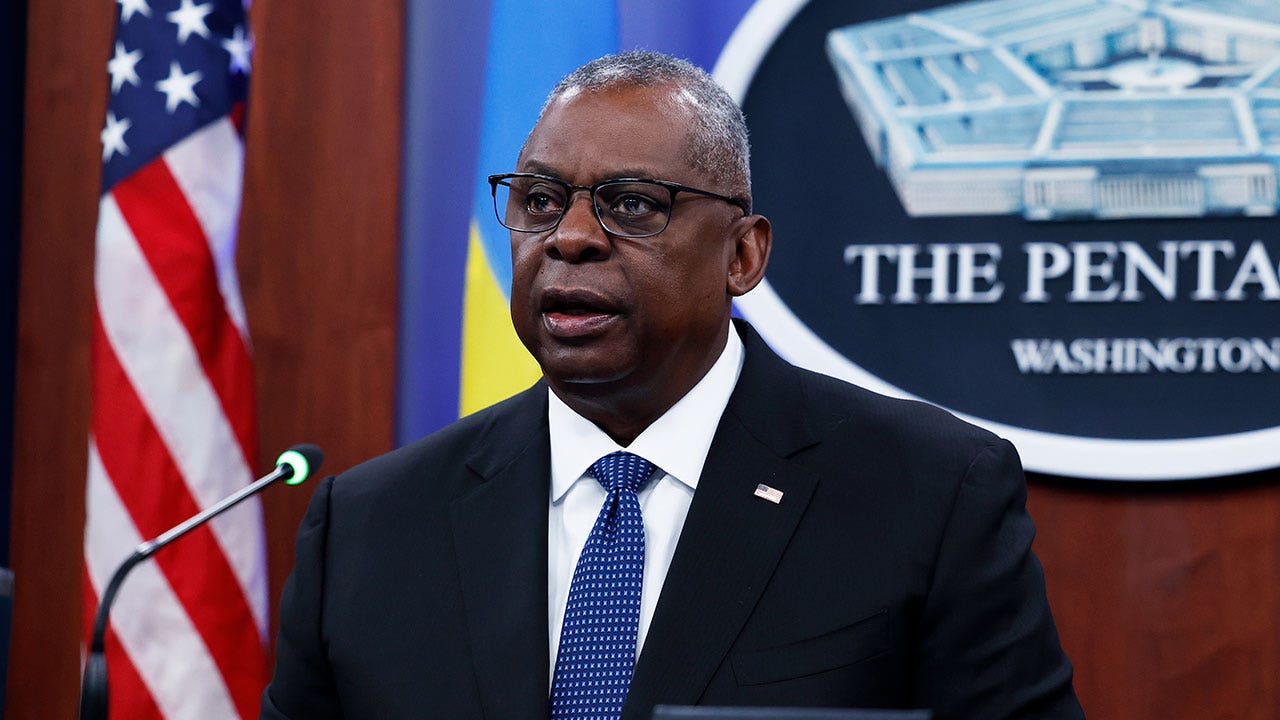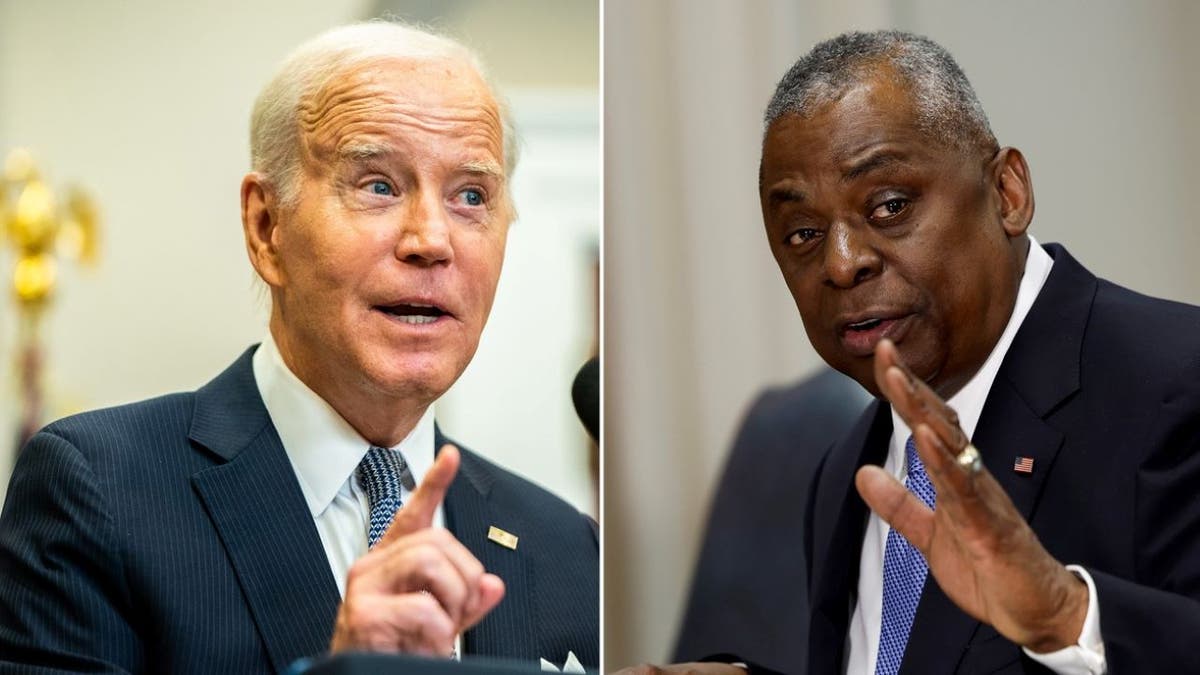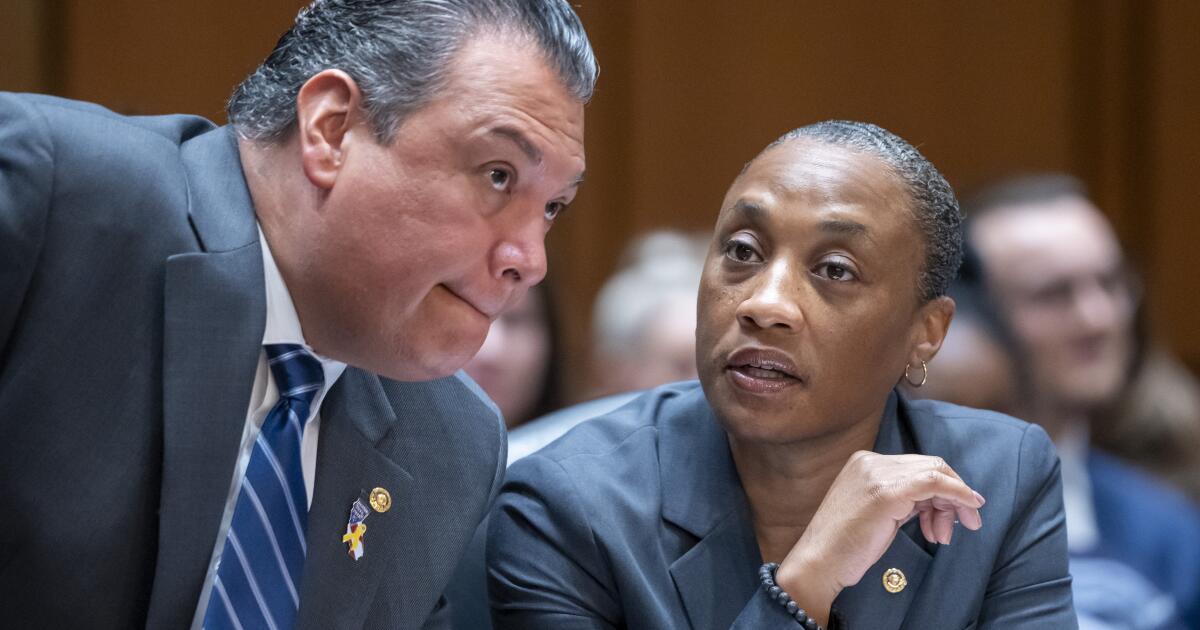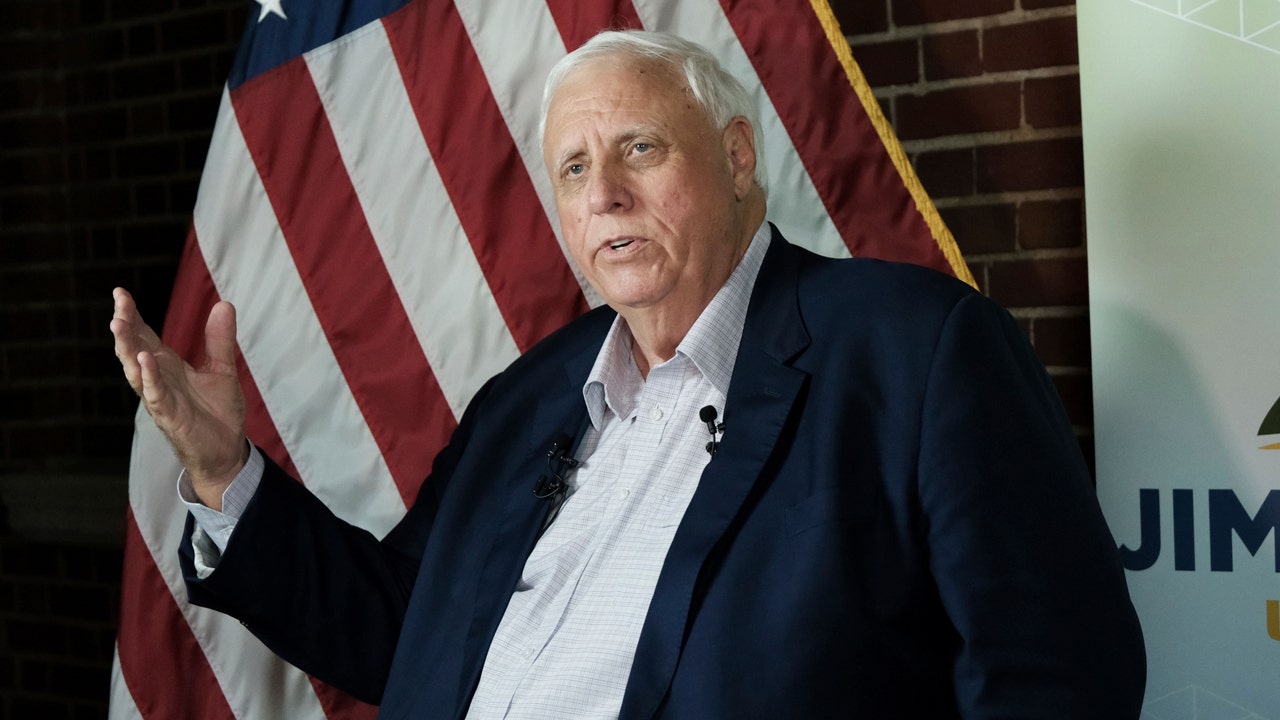Politics
JetBlue-American Partnership Struck Down by Federal Judge

A federal judge halted a partnership between American Airlines and JetBlue Airways at airports in New York and Boston, writing in a ruling on Friday that the alliance would hurt competition and raise fares.
The decision is a big victory for the Justice Department, which under President Biden has sought to enforce antitrust laws more aggressively, especially in industries like airlines and technology, where a few companies wield such dominance that it can be hard, if not impossible, for smaller businesses to challenge them. The judge ruled that the airlines’ partnership, known as the Northeast Alliance, must end.
Under the agreement, begun in 2021, each airline sells seats offered by the other on certain routes. The airlines also share revenue from certain flights and access to airport gates. The alliance covers the three major airports serving New York City and Boston Logan International Airport.
The Justice Department had said the collaboration reduced competition and would cost travelers hundreds of millions of dollars a year if it remained in place. The airlines had argued that the partnership provides consumers with more flying options.
Siding with the government, Judge Leo T. Sorokin of U.S. District Court in Boston wrote, “It makes the two airlines partners, each having a substantial interest in the success of their joint and individual efforts, instead of vigorous, arm’s-length rivals regularly challenging each other in the marketplace of competition.”
In statements, JetBlue and American said they were considering their legal options. JetBlue said it was “disappointed in the decision,” and American called the ruling “plainly incorrect.” Both described the partnership as a “huge win” for customers.
For the Justice Department, “it’s a big win,” said Gene Kimmelman, a fellow at the Harvard Kennedy School and Yale’s Tobin Center for Economic Policy and a former Justice Department official. “It was a very important case for the department to show that the agreement was constructed like a merger that concentrates power at key hub airports by coordinating flight schedules and airline capacity.”
A series of mergers over roughly two decades has greatly reduced the number of large airlines in the United States. In 2013, for example, American combined with US Airways. Earlier, United and Continental Airlines became one company, and Delta Air Lines joined up with Northwest Airlines. That has left travelers with fewer choices, especially at many hub airports, which tend to be dominated by one or two airlines.
Part of the Justice Department’s concern was that other airlines could establish partnership agreements, too, limiting choice for customers even further.
The ruling is a blow to JetBlue, which been trying to expand rapidly in recent years. In addition to the alliance with American, JetBlue has entered a deal to buy Spirit Airlines. The Justice Department is asking a judge to block that acquisition as well.
JetBlue is the sixth-largest airline in the United States, with a 5.5 percent share of the domestic market, according to federal data. American is the largest, with 17.6 percent.
In the lawsuit over the Northeast Alliance, the Justice Department argued that JetBlue had been a disruptive presence in the industry, forcing larger, more established airlines to lower prices. JetBlue’s deal with American effectively removed a formidable competitor from several important markets, the department argued.
More than 75 percent of all JetBlue flights last year flew to or from the four airports covered by the agreement, according to flight schedules tracked by Cirium, an aviation data firm.
“Though the defendants claim their bigger-is-better collaboration will benefit the flying public, they produced minimal objectively credible proof to support that claim,” Judge Sorokin wrote. “Whatever the benefits to American and JetBlue of becoming more powerful — in the Northeast generally or in their shared rivalry with Delta — such benefits arise from a naked agreement not to compete with one another.”
The airlines’ share prices fell roughly 1.5 percent on Friday, but there appeared to be little additional selling pressure in aftermarket trading following the afternoon legal ruling.
American and JetBlue have recorded strong gains in market value this year, but both still have a long way to go before they recover from the pandemic’s devastating impact on airline travel: American has lost about half its market value compared with the start of 2020, while JetBlue’s stock has fallen more than 60 percent since then.
In the lawsuit seeking to prevent JetBlue’s takeover of Spirit, antitrust regulators have argued that JetBlue’s pursuit of the Northeast Alliance is evidence that the airline is increasingly acting like a larger, more established carrier. Spirit is even more disruptive to other airlines today than JetBlue, which “has fewer reasons to continue to compete aggressively” with the nation’s largest airlines, the department said. That case is expected to go to trial this year unless it is settled first.

Politics
Defense Secretary Lloyd Austin to undergo nonsurgical procedure, Deputy Kathleen Hicks will assume control

Defense Secretary Lloyd Austin had a “scheduled, elective, and minimally invasive” nonsurgical procedure Friday evening at Walter Reed Medical Center as a follow-up for a bladder issue he had earlier this year, the Pentagon said in a release.
The procedure was unrelated to Austin’s cancer diagnosis.
“During that period [Friday], Deputy Secretary of Defense Kathleen Hicks assumed the functions and duties of the Secretary of Defense and served as the Acting Secretary of Defense. Secretary Austin subsequently resumed his functions and duties as the Secretary of Defense at 8:25 p.m. ET and has returned home,” Pentagon Press Secretary Maj. Gen. Pat Ryder stated in a release Friday night.
The Pentagon said the White House and Congress had been notified, and that Austin would be temporarily unable to perform his duties during the procedure.
LLOYD AUSTIN GRILLED ABOUT LACK OF TRANSPARENCY
The Pentagon said Friday that Secretary of Defense Lloyd Austin will undergo a nonsurgical procedure in the evening. (Anna Moneymaker/Getty Images)
Austin was diagnosed with prostate cancer and hospitalized in December and January, undergoing two surgeries, but didn’t tell the White House for several days at the time. It took even longer for the public to find out.
WHITE HOUSE ESTABLISHES GUIDELINES FOR CABINET NOTIFICATIONS FOLLOWING AUSTIN’S HOSPITALIZATION CONTROVERSY

Defense Secretary Austin will transfer power to Deputy Secretary of Defense Kathleen Hicks, who will serve as the acting secretary of defense. (Alex Wong/Getty Images)
The situation led to criticism of the Pentagon’s lack of transparency and the White House established a new set of guidelines for when Cabinet heads are unable to do their job and have to delegate authority at the end of January.
Some Republicans, including former President Trump, had called on Austin to resign.
Trump said on Truth Social in January that the defense secretary, “should be fired immediately for improper professional conduct and dereliction of duty. He has been missing for one week, and nobody, including his boss, Crooked Joe Biden, had a clue as to where he was or might be.”
The White House said that Austin maintained Biden’s “full trust,” and in February the defense secretary apologized for his lack of transparency.

President Biden said Defense Secretary Lloyd Austin still had his “full trust” after some Republicans called on him to be fired or resign earlier this year. (Demetrius Freeman/The Washington Post via Getty Images/Anna Moneymaker/Getty Images)
“I want to be crystal clear: We did not handle this right,” he said at the time. “And I did not handle this right. I should have told the president about my cancer diagnosis. I should have also told my team and the American public, and I take full responsibility. I apologize to my teammates and to the American people.”
Austin was hospitalized again on Feb. 11 for a bladder issue weeks after he had returned to work following his hospitalizations for cancer treatment.
The Pentagon added on Friday: “As highlighted in a Feb. 13 DoD news release, the Secretary’s bladder issue is not related to his cancer diagnosis and has had no effect on his excellent cancer prognosis. White House and congressional notifications have occurred.”
An update will be given following the procedure, the statement said.
Politics
California Sen. Alex Padilla convinces colleagues to vote against bipartisan border bill

Breaking with his own party’s leadership and the Biden administration, California’s Democratic Sen. Alex Padilla helped lead an effort to defeat the bipartisan border security bill that again failed to advance on Thursday.
In an impassioned Senate floor speech, Padilla criticized the legislation as inadequate and encouraged his fellow senators to “do what’s right for Dreamers, farmworkers and other long-term undocumented members of our communities.”
The remarks were his strongest public rebuke yet of the first major immigration reform proposal in years to make headway in Congress.
Padilla’s vigorous opposition to the compromise is the latest example of his willingness to stake out an aggressive position on principle on an issue critical to his state. He was joined by most Republicans, who voted against the bill because they said it did not do enough to secure the border.
The bill included significant provisions to tighten security but none to help change the status of immigrants in the country illegally.
“So the Senate is voting on this package for a second time, but still no vote on the DREAM Act?” he said. “It’s hard to swallow.”
Senate Majority Leader Charles E. Schumer (D-N.Y.) said he sought Thursday’s floor vote to make the point that Democrats want solutions on the border issue.
Senators voted 50 to 43 against the bill, which Sens. James Lankford (R-Okla.), Christopher S. Murphy (D-Conn.) and Kyrsten Sinema (I-Ariz.) had negotiated for months starting last fall.
A previous vote in February failed by a tally of 49 to 50, well shy of the 60 votes needed to pass. Lankford and Sinema flipped their votes to oppose their measure this time, as did Republican Sens. Susan Collins of Maine and Mitt Romney of Utah.
Padilla played a role in encouraging his colleagues to go against the plan. An aide said the senator had held private conversations with Democrats in the last few months and had contributed to Sens. Cory Booker of New Jersey and fellow Californian Laphonza Butler flipping their votes and opposing the bill.
In a statement after the vote, Butler echoed Padilla’s language, saying the bill “failed to provide comprehensive solutions for critical communities — DACA recipients, farmworkers, and longterm U.S. residents.”
“While there are elements of this bill I support, including funding for our border communities and efforts to prevent the flow of fentanyl, this measure simply misses the mark,” she wrote.
The Senate bill would toughen screenings for asylum and speed up the process, and let presidents immediately expel migrants if arrivals surpass a certain daily threshold.
Immigration has been a core issue of Padilla’s political identity. In his speech, he recalled returning home to California from college “to find hateful TV ads warning of an ‘invasion’ at our border.” The ads were in support of Proposition 187, the 1994 law that sought to deny medical care, social services and education to immigrants suspected of lacking lawful status.
Padilla said that seeing public officials scapegoat and demonize families like his convinced him to join an ensuing movement to bring more Latinos into positions of power.
That hateful rhetoric is back, Padilla said. He pointed to former President Trump’s statement — echoing those by Adolf Hitler — that immigrants are “poisoning the blood” of the country, and Republicans’ declarations that there is an “invasion” at the southern border.
Padilla said such claims are undeniably part of the context in which the border bill was written.
The senator’s independent streak is significant, coming in a critical election year in which Republicans have seized on the issue of immigration, rallying against Democrats for what they see as soft border policies.
The bipartisan legislation was a fundamental piece of the Biden administration’s shift toward more conservative immigration policies — an effort to help Democrats in vulnerable seats maintain control of the Senate and regain the House.
Padilla’s public opposition to the president on this issue reflects a growing rift among Democrats.
The senator campaigned in 2022 on his desire to reform the immigration system, and personally warned Biden in mid-December not to fold to the GOP.
In his speech Thursday, Padilla pointed out that the immigration proposal was originally meant as a concession to get Republicans to agree to send more aid to Ukraine.
“But guess what, Mr. President? We passed the foreign aid!” he said. “And so I can’t help but ask, what’s this concession for now?”
He also critiqued executive actions on immigration that Biden reportedly plans to announce in the coming weeks, calling them “extreme.” Thursday’s vote was widely seen as a leadup to those measures, which could include a provision that would allow the administration to broadly block migrants from entering the country.
Before the vote, Padilla warned colleagues that history would judge them.
“We should be better than this,” he said.
Politics
WV Gov. Justice ends jail staffing state of emergency after nearly 2 years

West Virginia Gov. Jim Justice said Friday he is ending the state of emergency over staffing in the state Department of Corrections.
The Republican governor called on the state National Guard to help stop worker attrition at the state’s jails and prisons almost two years ago now. Last summer, the vacancy rate was more than 30%.
“We’re just always proud to run to the fire,” Gen. William E. Crane, Adjutant General of the West Virginia National Guard said during a briefing with the press Friday.
WEST VIRGINIA GOV. JIM JUSTICE WINS SENATE GOP PRIMARY
Just over 730 members of the state National Guard worked in 17 of the state’s correctional facilities while the state of emergency was in place, Justice said.
FILE – West Virginia Gov. Jim Justice speaks at an election night watch party at the governor’s mansion in Charleston, W.Va., on Tuesday, May 14, 2024. West Virginia Gov. Jim Justice said Friday he is ending the state of emergency over staffing in the state Department of Corrections. (AP Photo/Chris Jackson, file)
Since January 2024, almost 240 people have graduated from the state’s corrections academy. A total of 38 National Guard members assigned to work in the jails and prisons decided to stay on permanently, Crane said.
Last summer, state lawmakers met in a special session to approve over $21 million for correctional officer pay increases, along with two one-time bonuses of $2,294 for other jail staff who are not correctional officers, like kitchen staff.
Justice previously declared a state of emergency for the state’s jails and prisons in 2017.
-

 Politics1 week ago
Politics1 week agoVulnerable Dem incumbents move to the center in key swing states as Biden panders to far-left base
-

 World1 week ago
World1 week ago‘Monstrous crime’: World reacts to attack on Slovakia’s prime minister
-

 News1 week ago
News1 week agoHow a migrant aid group got caught up in a right-wing social media thread : Consider This from NPR
-

 Politics1 week ago
Politics1 week agoSouthern border migrant encounters decrease slightly but gotaways still surge under Biden
-

 World1 week ago
World1 week agoSlovakia PM Robert Fico in ‘very serious’ condition after being shot
-

 Movie Reviews1 week ago
Movie Reviews1 week agoIs Coppola’s $120M ‘Megalopolis’ ‘bafflingly shallow’ or ‘remarkably sincere’? Critics can’t tell
-

 Movie Reviews1 week ago
Movie Reviews1 week agoGuruvayoor Ambalanadayil movie review: This Prithviraj Sukumaran, Basil Joseph-starrer is a total laugh riot
-

 World1 week ago
World1 week agoTaiwan grapples with divisive history as new president prepares for power













